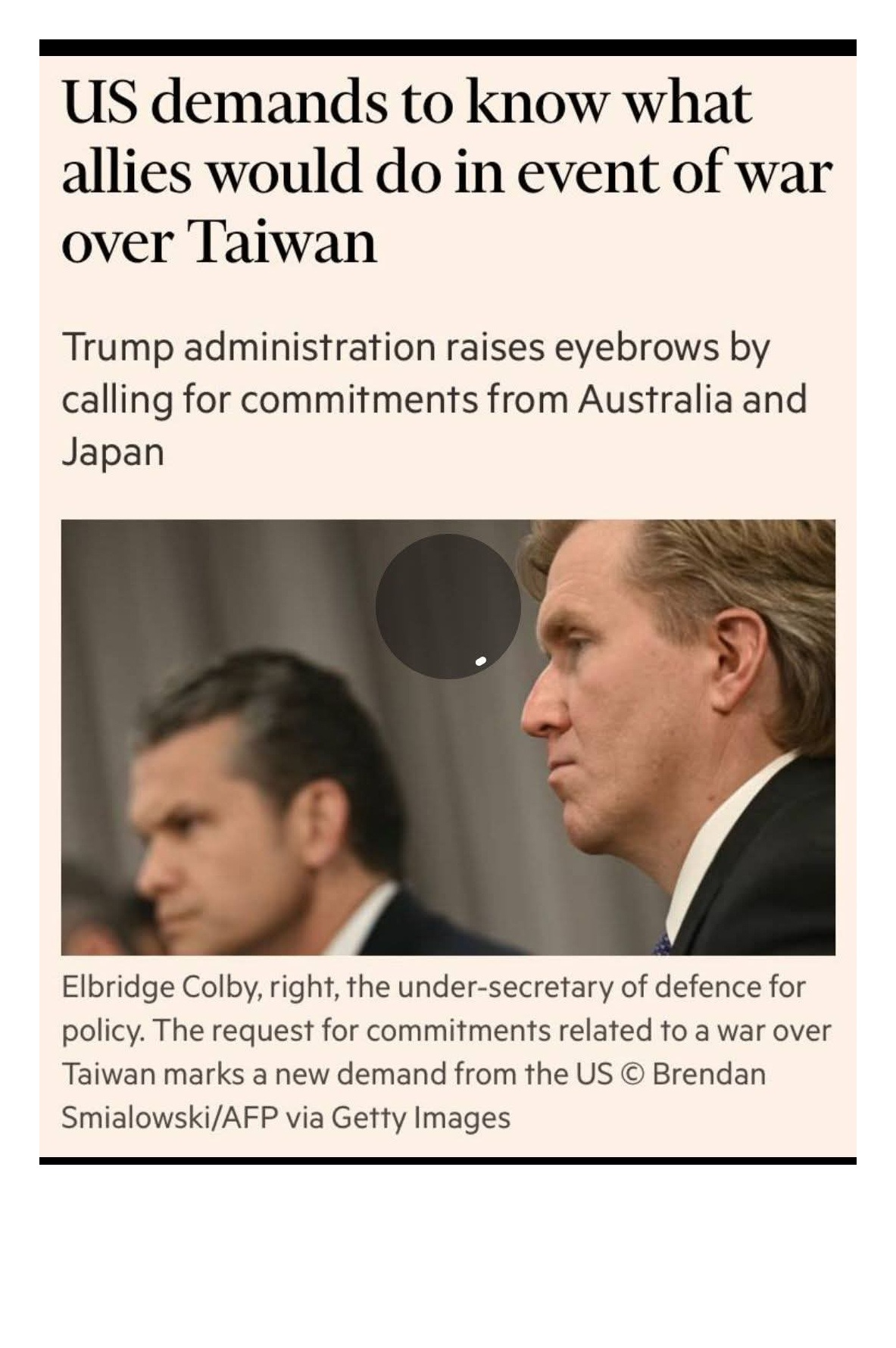Washington Turns to China as Next Geopolitical Target
After failed interventions in Russia and Iran, the United States looks to its Indo-Pacific allies ahead of a possible conflict over Taiwan.
The United States is shifting its focus once again, this time towards China. Having failed to achieve its goals in Russia and Iran, whether by military defeat, regime change, or internal destabilisation, Washington appears determined to confront Beijing next. The reasoning, as ever, lies in the desire to preserve a unipolar world order that is steadily giving way to a multipolar reality.
According to a recent report by the Financial Times, the Pentagon is now pressing key allies in the Indo-Pacific region, specifically Japan and Australia, to make their positions clear in the event of a conflict with China over Taiwan. American defence officials are said to be urging both governments to commit to support the United States militarily should tensions with China escalate into war.
This pressure has come as something of a surprise to both Tokyo and Canberra. Although the United States conducts joint military planning and exercises with both countries, officials have noted that Washington itself has not extended any absolute defence guarantee to Taiwan. Despite officially recognising the One-China principle, which regards Taiwan as a part of China, the United States continues to supply weapons to the island and maintain strategic ambiguity regarding its response in the event of a Chinese invasion.
One unnamed source cited by the Financial Times explained that planning related to a potential Taiwan conflict is already well underway, but Washington’s request for explicit commitments has unsettled its partners. Elbridge Colby, a senior US defence official, has defended the move by referring to Donald Trump’s policy of restoring deterrence and maintaining peace through strength. Yet he also acknowledged that some American allies may not appreciate these “frank conversations.”
In Australia, Defence Industry Minister Pat Conroy was quick to push back. Speaking to ABC, he refused to engage in hypotheticals and reaffirmed that only the Australian government has the authority to commit its forces to war or to allow its territory to be used in such a conflict.
Meanwhile, tensions in the Taiwan Strait have been steadily rising. The election of Taiwanese president Lai Ching-te, who is seen as favouring independence from China, has further inflamed Beijing’s concerns. Although the United States recently reached an agreement with China on rare-earths trade, which momentarily eased some economic tensions, the broader strategic rivalry remains very much alive.
(Same tactics as in Ukraine, desecration of shared monuments with China begins in Taiwan)
The emerging pattern is consistent with every failed attempt to reshape Russia and Iran to its liking, Washington turns to another potential adversary, this time a far more powerful one. In doing so, it draws its allies into a web of strategic commitments that may not reflect their own national interests.
The question now is whether Japan and Australia will ultimately follow Washington’s lead. For both, the stakes are far higher than diplomatic alignment or military cooperation. In the event of war, they would bear the consequences on their own soil, while the broader Indo-Pacific region would face disruption, instability, and possibly something much worse.
If recent years have shown anything, it is that the drive to maintain global supremacy comes at a mounting cost, not just for those labelled adversaries, but also for those drawn into conflicts that are not of their own making.
Do you want to support my work? You can by becoming a monthly or yearly PAID SUBSCRIBER. I’m here for your raw, straight, and dedicated analyses. Your support is appreciated. Thank you.
buymeacoffee.com/ggtv





